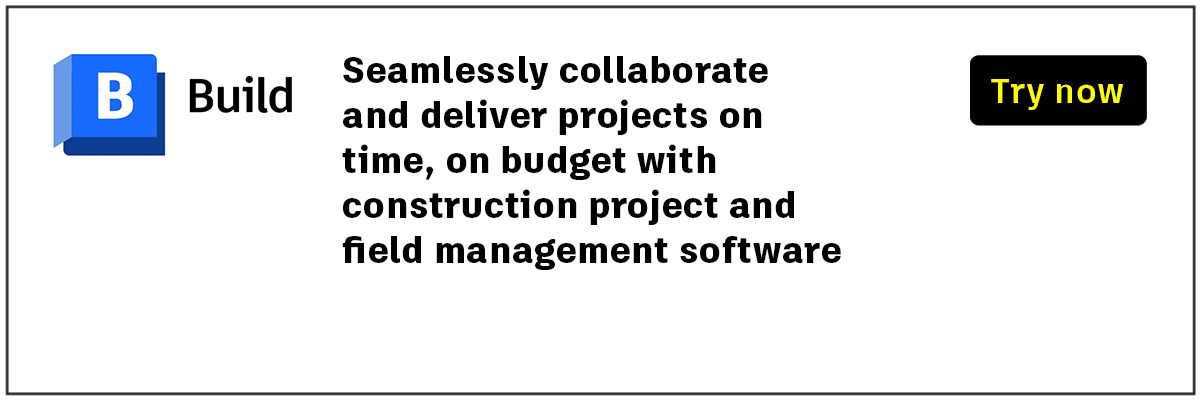
Every construction project has multiple phases and components. There are often several stakeholders, different milestones or deadlines, not to mention various documents and equipment on the jobsite. Orchestrating all these things requires meticulous coordination, which is where construction project management comes into play.
Construction project management is the process of planning, coordinating, and overseeing all aspects of a construction project from its inception to completion. The goal is to deliver the project on time, within budget, and according to the specified construction quality standards.
In this article, we dive into all things project management in construction. We shed light on the construction project management process, the roles involved, and the tools you could use to ensure everything runs smoothly.
What we cover:
Construction project management is a professional service that involves the direction and organization of the entire project life cycle from ideation to completion. Construction project management is a holistic practice that deals with the cost, schedule, safety, quality, function, and scope of a construction project.
It is a complex discipline that goes beyond cost control and procurement to ensure the process is efficient from start to finish. The project managers work with the entire team involved in the construction to achieve this. Despite all the collaboration in a project, the construction manager’s responsibility is to ensure a successful project for the owner.
Construction project management must be conducted by a professional project manager of dedicated construction manager. Using professionals helps cut costs, minimize risks, and ensure higher work quality.
Professional construction managers (CMs) have the knowledge and expertise required to manage projects successfully based on industry-standard practices. Construction managers focus on all six aspects of construction project management: cost, quality, schedule, function, scope, and safety.
We just covered the “what” behind construction project management; now let's get into who is involved in the process.
The project owner is the entity financing the project and typically hires the right team to design, build, and operate their project. They are responsible for defining the project scope, setting the budget, and approving major decisions throughout construction.
Every large construction project requires a licensed Architect or Engineer. They could be a person, or a firm contracted to design the project and coordinate the engineering disciplines.
The construction project manager oversees the entire project, ensuring it stays on track, within budget, and meets quality standards. They coordinate between jobsite and office stakeholders, manage schedules, and handle any issues that arise.
As their job title suggests, construction project managers are the folks who own the project management side of things. They're responsible for executing the proper procedures, keeping stakeholders aligned, and ensuring deadlines are met.
The construction manager focuses on on-site management. They look after day-to-day operations on the jobsite so all units run smoothly. This includes supervising the work crews, managing site safety, and seeing to it that the project is built according to the plans and specifications.
The construction estimator is responsible for estimating the cost of a construction project. Budgets and financial forecasts are their jam. Construction estimators analyze plans, materials, labor, and time requirements to provide an accurate estimate, helping set the project's budget.
The general contractor—aka GC—is hired by the project owner to manage key construction activities. GCs are responsible for hiring subcontractors, procuring materials, and ensuring the job meets regulatory requirements.
Subcontractors are specialized professionals hired by the general contractor to perform specific tasks such as electrical, plumbing, or HVAC work. Since construction jobs involve specialized components, subcontractors are brought in for their expertise in their respective fields. That way, each component of the project is completed to high standards.
While construction teams are made up of different people, the bulk of the management process is handled by the construction project manager. Their role encompasses different aspects, from looking at contracts, budgets, and schedules to managing change orders.
Construction project managers oversee contract development and negotiation with contractors and subcontractors. They see to it that all parties clearly understand the project scope, deliverables, timelines, and payment terms.
They also ensure adherence to contract terms. For example, in a guaranteed maximum price (GMP) contract, the max amount the owner would have to pay is capped. In this instance, the construction project manager must meticulously monitor costs and expenditures, so the project remains within the agreed-upon budget.
Construction contract management also involves navigating conflict. If any disputes arise, the construction project manager may facilitate those conversations, ensuring they are resolved quickly and fairly.
Construction project managers create (or oversee the creation of) a detailed project budget that accounts for all costs (materials, labor, equipment). They monitor budget expenditures and implement cost-saving measures when necessary. This involves tracking expenses against the budget in real time, identifying potential cost overruns early, and negotiating with suppliers and subcontractors to secure the best prices.
With rising costs at the forefront of everyone's minds, construction project managers must stay on top of budget management to maintain financial control over the project.
It's not enough that projects are completed within budget—they must also be delivered on time. That's why a key part of the construction project manager's role is to help develop realistic project schedules. This can be done using tools like Critical Path Method (CPM), which identifies the sequence of critical tasks that determine the project's duration and highlights dependencies between tasks.
Once the team has a working schedule, the construction project manager tracks progress, identifies potential delays, and makes the necessary adjustments to keep the project ticking along.
Change orders are part of the territory for many construction projects and often involve modifications to the original plans or specifications. Construction project managers are responsible for managing these modifications to the project scope (changes requested by the owner).
Effective change order management aims to ensure that changes are implemented smoothly without causing significant delays or cost overruns.
Construction project managers are still very much in play during the final stretch of the project—i.e., the construction project closeout stage. Here, they oversee final construction inspections, ensuring all work meets specifications.
Construction project managers also obtain final approvals and handle the paperwork necessary for project completion, including warranties, as-built drawings, and operation manuals.
Effective construction project management is all about making sure projects kick off on the right foot and close out strong. As such, every phase of a construction job involves some form of project management activity, ensuring that each stage is carefully planned, executed, and reviewed for success.
Let's examine the different stages of a construction project.
During the planning and design stage, construction project managers work closely with architects, engineers, and clients to define the project scope and objectives. They help develop detailed plans and specifications, so all requirements are met and potential issues are addressed.
Project managers also create initial budgets and timelines, set up project management tools, and establish communication protocols to keep stakeholders informed throughout the project.
A project can't move forward without the right permits, so this stage is about obtaining approvals from local authorities. Construction project managers coordinate with regulatory bodies to confirm compliance with zoning laws, building codes, and environmental regulations. They submit required documentation, schedule inspections, and address any concerns raised by inspectors so the project is in the clear before breaking ground.
Once the project gets the green light, preconstruction begins. Here, project managers may assist in overseeing site preparation activities such as land clearing, grading, and utility installation.
They also manage the procurement process and secure the necessary materials, equipment, and labor for the project. This stage involves detailed planning to ensure everything is in place for a smooth construction phase.
The construction phase is where the actual building happens. Here, the project and construction managers, alongside the GC, oversee daily operations and see that work is carried out according to plans and specifications.
They coordinate between subcontractors, monitor progress against the schedule, and manage the budget.
Construction is complete, but there are a few more things left to do. In the post-construction phase, project managers supervise final inspections so that all work is up to snuff. Construction project managers also coordinate the handover process, where they compile all the documentation (warranty docs, manuals, etc.) required to run and maintain the building and provide them to the owner.
Construction project management can be complex and time consuming, which is why teams can significantly benefit from technology.
What is construction project management software? Simply put, it's a digital tool for managing construction projects. Construction management software streamlines workflows by automating tasks, tracking progress, and providing real time updates. Depending on the solution you're using, your software can also centralize several aspects of the project—including plans, schedules, budgets, and more—which means teams get a single source of truth for all things project-related.
With the right platform, construction project managers won't have to update spreadsheets or chase down information manually; instead, they can focus on overseeing the project, making informed decisions, and keeping everything on track.

Construction project managers must keep projects on schedule, so having a tool to manage this process is a must. Some project management platforms have built-in scheduling solutions; however, you can also adopt separate scheduling apps.
Whatever the case, set your sights on solutions that offer real time updates, integrate seamlessly with other project management tools, and provide features like Gantt charts, critical path analysis, and automated reminders.
Construction project managers must stay connected with team members across multiple project stages. As such, having a tool that lets you communicate in real time is absolutely necessary. Ideally, your collaboration platform houses all conversations (and necessary information, documents, and resources) in one place so teams won't have to switch between different channels to get their messages across.
Keeping projects within budget can be a challenge, especially with fluctuating material prices and issues like labor shortages. That's why robust cost management tools are key. Choose a solution that provides real time visibility on cost management activities so you can accurately assess risks and develop forecasts.
Construction management software features like detailed cost breakdowns, change order tracking and automated construction reporting are also helpful in a cost management tool, as well as integrations with your accounting system or ERP.
Once construction is underway, most of the action will take place in the field. This is where a field management solution will come in handy. Whether teams are performing construction quality checklists, safety inspections, or equipment commissioning workflows, these tools help ensure that all tasks are completed.
Select a field management solution that enables you to review and complete checklists, monitor quality, track punch lists, and oversee safety processes. In doing so, every aspect of field operations is managed effectively.
Plans. Permits. Financial documents. Warranties. Construction projects come with a lot of documentation, which is why teams need a document management solution that keeps all paperwork centralized, organized, and accessible.
The ideal solution serves as your single source of truth across the entire project and all teams involved. This means having a docs management platform that can support various types of data and construction file workflows, as well as provide robust search, version control features, and user permissions.
You should also choose a system that's flexible enough to support your workflows, particularly when it comes to construction design management reviews, document approvals, and collaboration.
Even the best construction project managers need help. If you are looking for key guides and templates for construction project management, we've collected a hub of resources for you:
Staying on top of construction project management is essential for successfully delivering any project.
While projects can be complex, managing their components is doable when stakeholders understand (and execute) their responsibilities and openly collaborate with other teams.
And, of course, the right construction project management is vital. Having a powerful and comprehensive solution like Autodesk Construction Cloud streamlines workflows, improves communication, and ensures all aspects of the project are managed efficiently.
Learn more about Autodesk Construction Cloud's construction project management capabilities and discover why thousands of teams choose Autodesk to run their projects.

